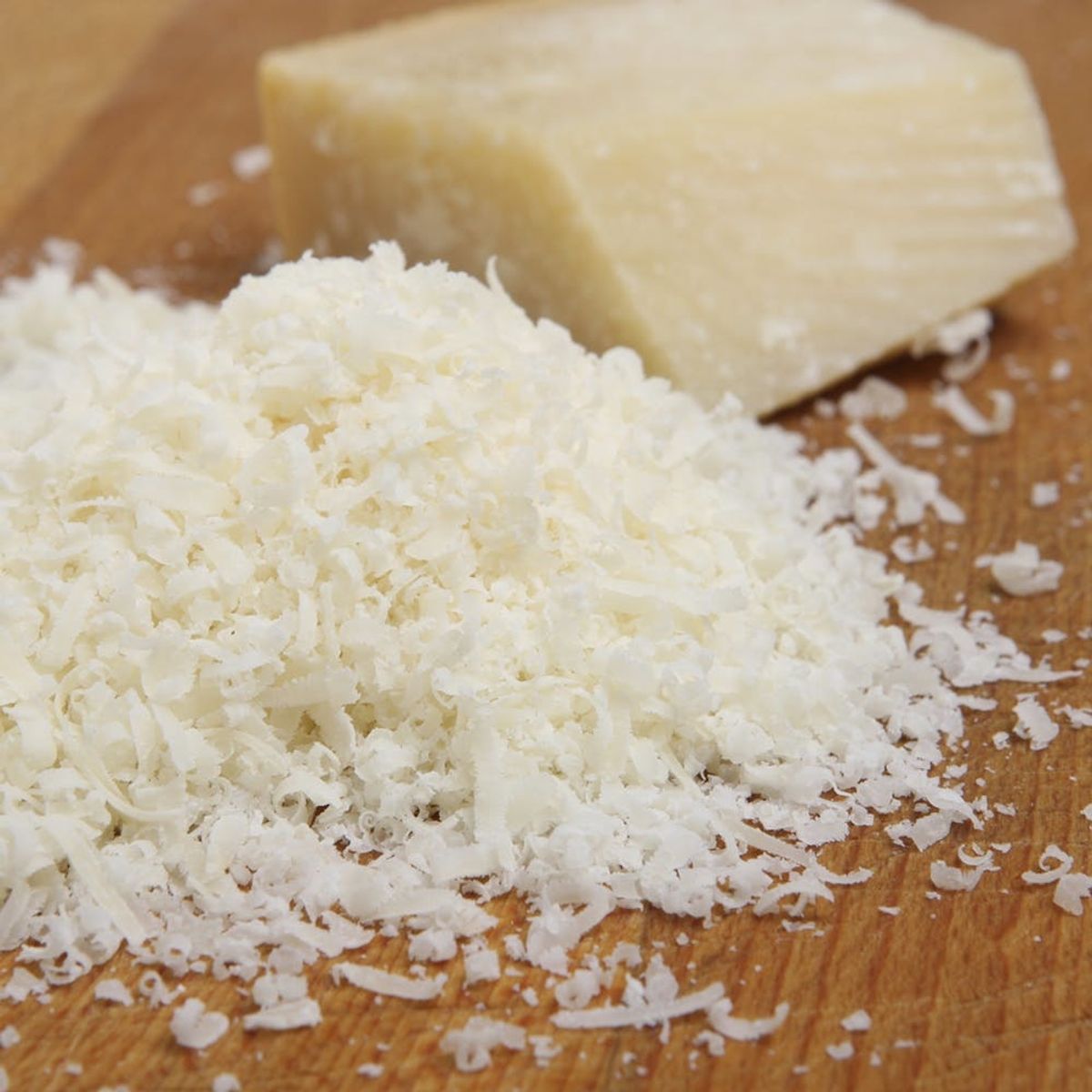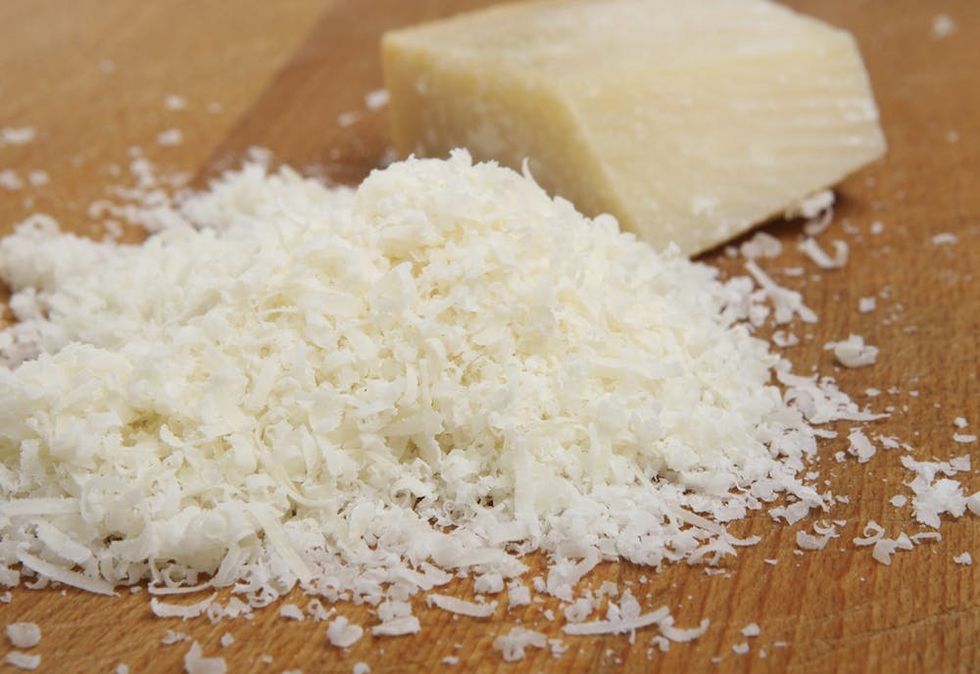The Parmesan You Sprinkle On Your Pizza Might Actually Be Wood Pulp

There are a few things that go hand-in-hand. Coffee + creamer, ice cream + brownies, pizza + parmesan to name a few. Nothing tops off a piping hot slice of pizza better than a sprinkle of crumbly and delicious parmesan cheese TBH (hopefully you scored some on cheese day at Whole Foods) — but what if we told you there’s a possibility that bottle of what you thought was a savory hard cheese is in fact mostly the innards of a tree? Pizza + wood pulp = NOT a match made in heaven. Unfortunately, according to a new Bloomberg report, that’s exactly what the FDA found to be the case when they cracked down on a Pennsylvania cheese factory back in 2012.

What FDA found was Castle Cheese Inc. was using way too much cellulose, an additive used to prevent clumping, in their supposed 100 percent grated parm along with many other cheap substitutes. Based off the estimation of Arthur Schuman, whose company Arthur Schuman Inc. is “the biggest seller of hard Italian cheeses in the U.S., with 33 percent of the domestic market” and a long-time advocate for labeling transparency, about 20 percent of the U.S. grated parmesan cheese bottles are mislabeled.
According to Bloomberg’s reporting, cellulose is safe, but shouldn’t comprise of more than two to four percent of the product to ensure purity. Bloomberg News even had a range of grated parmesan product tested by an independent lab. Several brands, especially bargain brand stores, contained more than the recommended amount of cellulose in their product. In some cases, it was double the maximum amount.

As for Castle Cheese, the company raided by the FDA, the reports for their Market Pantry Brand 100% Grated Parmesan Cheese, Always Save Grated Parmesan Cheese and Best Choice 100% Grated Parmesan Cheese came back saying “no parmesan cheese was used to manufacture” any of their products. Instead, the tests showed that “there was a mixture of Swiss, mozzarella, white cheddar and cellulose, according to the FDA.” Their president Michelle Myrter is pleading guilty this month to criminal charges and “faces up to a year in prison and a $100,000 fine.” Eek!
How is this even allowed? you might be asking as you stare down sadly at your naked slices of pizza. Simply because cellulose isn’t a health hazard really and John Spink, director of the Food Fraud Initiative at Michigan State University tells Bloomberg, “the FDA, which enforces the country’s food laws, prioritizes health hazards.”
Do better, cheesemakers. Our pizzas deserve the very best.
What do you think the FDA should do about this? Tweet us @BritandCo!
(h/t Bloomberg, photo via Getty)



















